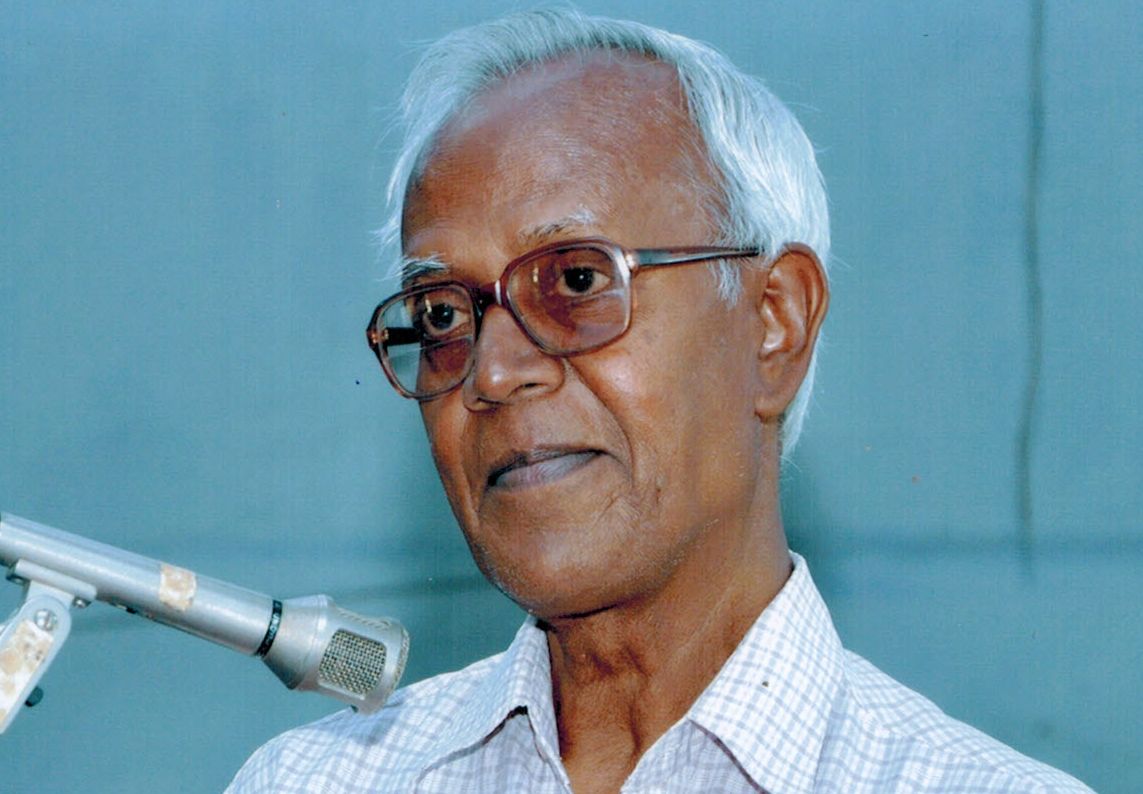Remembering Fr. Stan Swamy in today’s Challenging Reality, PUCL- Gujarat

Relevant State Gujarat
People’s Union for Civil Liberties (PUCL) Gujarat organised an event in Ahmedabad entitled “Remembering Fr. Stan Swamy in today’s Challenging Reality” on Sunday, July 21, 2024 in memory of Fr. Stan Swamy on his third death anniversary. The event included a discussion of the new criminal laws enforced since July 1, 2024.
At the start of the event Fr. Cedric Prakash spoke about Fr. Stan Swamy, a fearless defender of tribal rights in Jharkhand, who was arrested by the NIA in 2018 in the context of the Bhima Koregaon case. Human rights defenders and members of political parties across the nation had protested the arrest of the then 81-year-old activist who had worked tirelessly with Adivasis to defend their rights. He passed away on July 5, 2021 at the Holy Family Hospital, Mumbai due to complications related to COVID while still under arrest.
Advocate Lara Jesani of the Bombay High Court delivered the keynote address and discussed the BNS, BNSS, and BSA which have replaced the IPC, CrPC, and Indian Evidence Act, respectively and their implications for citizens’ rights. She expressed serious concern regarding the manner in which the Law Commission was bypassed, views of public and experts not considered in the process of overhauling the criminal jurisprudence of the country, by just entrusting the task to a 5 member committee.
It was strange that when 80-85% of the BNS, BNSS and BSA was taken verbatim from the erstwhile CRPC, IPC and the Indian Evidence Act and just reorganised, rather than “decolonised” as claimed, that the laws were replaced when the limited changes could have been brought through amendments as was being done from time to time.
While examining the new criminal laws, Lara Jesani expounded on the issues they throw up, some key ones being : (i) the discretion given to the police to conduct a preliminary investigation before deciding whether an FIR should be filed (ii) the vagueness in the number of days of police custody that could be granted which could result in a situation where the earlier provision limiting to the first 15 days could be now extended to 60 or 90 days, and thereby almost pre-closing the possibility of bail during this entire period (iii) the introduction of provisions from anti-terror law UAPA into the BNS, the introduction of the controversial sedition- like law in a graver and more dangerous form (iv) criminalisation of hunger strike by protestors, (v) the admissibility of electronic evidence without any safeguards for privacy and data protection or procedures for seizure of devices and integrity of device and data, and other provisions which give arbitrary and sweeping powers to the police. Ms. Jesani said that not only would these ill-conceived changes brought about through the new criminal laws lead to chaos in court and increased litigations in an already stressed legal system, but they are regressive and contradict the law laid down in several landmark Supreme Court Judgements like in the case of D.K Basu, Joseph Shine and Lalita Kumari, and are violative of fundamental rights enshrined in the Indian Constitution.
Adv. Govind Parmar, the President of PUCL Gujarat, said that the manner in which Fr. Stan Swamy was incarcerated under draconian laws were an indication of how the new criminal laws could be used to snatch away civil liberties and fundamental freedoms of citizens. He was apprehensive that the changes in procedural law as envisaged in the new criminal laws could have serious implications on laws like the SC&ST (Prevention of Atrocities) Act. Activist Nirjhari Sinha spoke on how these laws could be used to curtail the freedom of speech, especially of independent media and fact-checkers. The window of 15 days given to the police to investigate and ascertain prima facie the commission of an offence would have far-reaching implications on ensuring justice in cases of sexual violence. Advocate Amrish Patel emphasized how the procedural law in the earlier criminal jurisprudence flowed from Article 21, which has been overturned by the new laws.
Advocate Shamsad Pathan said that the struggle of the minorities to make their voices heard in the context of the spread of hate speech and targeted violence would be seriously affected as a result of the sweeping powers given to the police in the new criminal laws. Gova Rathod, General Secretary, PUCL Gujarat observed that these new laws would be instrumental in suppressing the on-going struggles of the Dalit and Adivasi communities for justice.
Kishor Chaudhury said that the impact of the new laws was already being felt in the Adivasi community. The police already cited the new laws when the Adivasi organizations informed them about the Indigenous Day celebrations on 9th August; and that Adivasis should limit to their ‘cultural programmes’ on this day and not any political demonstrations.
Ashim Roy was positive that the various stakeholders, especially the legal fraternity and civil society activists would stand up against the new criminal laws and spearhead a collective, democratic and transparent process that would compel the government to withdraw the new criminal laws.